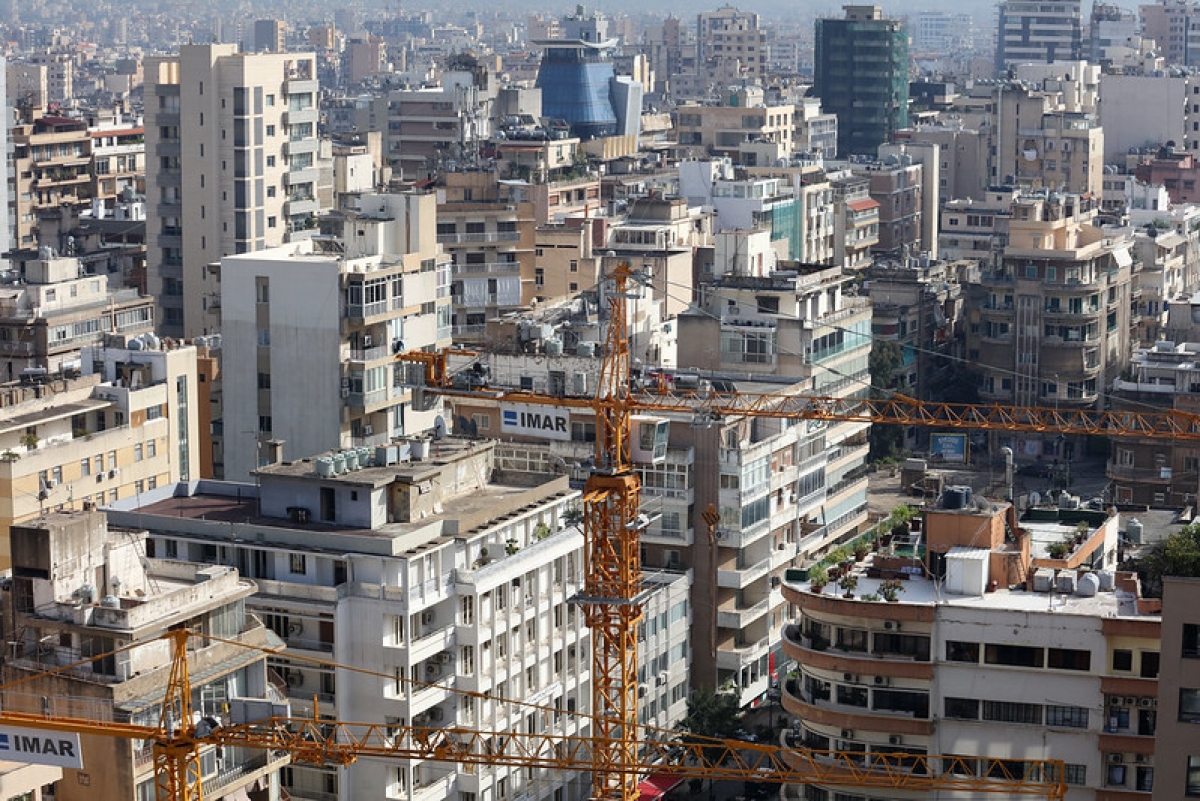In Beirut wächst die Angst vor einem Krieg

Blick auf Beirut, Bildquelle: World Bank Photo Collection, Flickr
Trotz wachsender Spannungen an der israelisch-libanesischen Grenze, wo es täglich zu Raketenangriffen kommt, bleibt der Einsatz der Hizbollah eher symbolisch.
Denn sie verfügt über zehntausende Raketen und eine gut ausgebildete eigene Armee, die, würde sie in den Krieg eintreten, extreme Verwüstung in Israel anrichten könnte. Bislang allerdings hält sich die Hizbollah für ihre Verhätnisse noch zurück, ganz offensichtlich auch, weil man sich in Teheran noch nicht entschieden hat, inwieweit man die Eskalation im Nahen Osten vorantreibt.
De facto sind auch die Menschen im Libanon wenig anderes als Geiseln der Hizbollah und damit deren Willen ausgeliefert. Sie wissen, dass, sollte es zum Krieg kommen, Beirut vermutlich ähnlich aussehen würde wie Gaza jetzt.
Entsprechen besorgt ist man in der libanesischen Hauptstadt:
Time has stopped in Beirut, the capital of Lebanon, as its inhabitants wait for a war that has yet to begin.
Following Hamas's attack in Israel on October 7 that kicked off a massive escalation of violence in Gaza, the southern border of Lebanon has been the site of tit-for-tat clashes between Iran-backed Hezbollah and an ally of the Palestinian militant group on one side, and Israel on the other.
Beirut residents told The National they are fearful of what could come next, as some governments, including Canada and the US, have advised their citizens to leave.
The skirmishes Israel and Hezbollah, which have resulted in dozens of fatalities, including civilians, have been contained so far, as the two sides loosely follow the so-called rules of engagement, which have prevented escalation since a full-blown war in 2006.
However, the situation could shift in an instant: a ground invasion of Gaza – which could potentially lead to Hezbollah and its primary backer, Iran, coming to the rescue of Hamas – or miscalculation by either side could lead the entire nation to be pulled into the conflict. (...)
Faced with uncertainty, many in Beirut are preparing for the worst.
Some have already begun stockpiling food and emergency provisions as they recall the 2006 war, a month-long conflict that pitted Hezbollah against Israel and claimed the lives of more than 1,200 Lebanese – mostly civilians – and 165 Israelis, mainly soldiers.
Mariam, a 35-year-old mother of two living in Beirut’s southern suburb of Dahieh, which was heavily affected during the 2006 conflict, told The National she had packed suitcases in case she needs to quickly evacuate her family.
“Each bag has several changes of clothes, water, food and medicine in case of emergencies,” she said. “Because who knows where we’d end up if we had to leave suddenly.” (...)
While many Lebanese find themselves with no alternative but to wait, some foreign residents, among them staff from NGOs and international organisations, have already initiated the process of evacuation.
Many embassies, including those of the US and Britain, have advised their citizens to leave Lebanon while flights remain available. The primary concern is that the airport could become a target, as was the case during the 2006 war.
Lebanon's Middle East Airlines has cancelled half of its flights due to changes in insurance coverage. the airline has also transferred a significant portion of its fleet from Beirut–Rafic Hariri International Airport due to the security risks in the region.